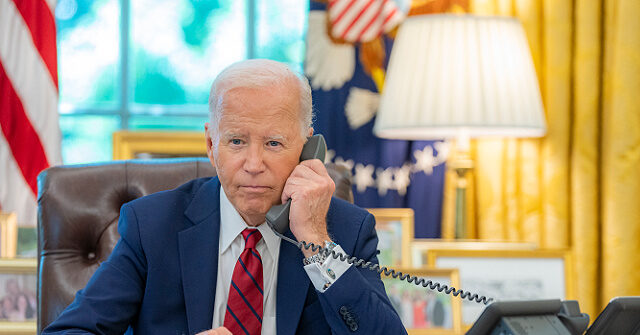Recent reports indicate that Israel has halted its attacks on Hezbollah targets in Beirut at the request of U.S. President Joe Biden. For the last month, the Israel Defense Forces (IDF) conducted a significant campaign targeting Hezbollah bunkers and operatives, primarily in the Dahiyeh area of southern Beirut. This military effort has reportedly led to the elimination of many senior Hezbollah leaders, causing considerable disruption within the organization. The decision to pause these operations came during a phone call between Biden and Israeli Prime Minister Benjamin Netanyahu, marking their first discussion since August, emphasizing Biden’s influence in the region.
According to multiple Israeli media sources, Biden’s request for Israel to scale back its attacks stemmed from concerns about escalating violence in the Lebanese capital. This shift in strategy from Israel may provide Hezbollah with a renewed opportunity to regroup and fortify its defenses in Beirut, ultimately complicating Israel’s military operations. The U.S. has vested interests in maintaining some level of stability in Lebanon, providing significant financial assistance to support the Lebanese government and fund humanitarian efforts—a move intended to bolster civilian welfare while also addressing fears of funds finding their way into Hezbollah’s hands.
The Biden administration’s commitment to Lebanon is underscored by its ongoing investment in a large new embassy in Beirut, a project costing around $1 billion. This decision has raised eyebrows regarding the necessity of such an extensive diplomatic footprint in a relatively small and geopolitically complex nation, where American influence is limited, and direct commercial ties are few. Critics question the strategic value of this embassy, especially given the escalating tensions in the region and the potential risks posed to U.S. personnel.
Hezbollah remains a powerful and entrenched entity in Lebanon, often at odds with the interests of both the Lebanese government and Israel. The group, designated a terrorist organization by several countries, including the U.S., has established a strong presence and infrastructure in Beirut. Israeli military actions over the past few weeks have aimed to dismantle this presence, but with the U.S. influencing Israel’s decisions, the landscape of conflict may be shifting. There are growing concerns that a vacuum could emerge in Beirut if military pressure is eased, allowing Hezbollah to regain strength.
The diplomatic dynamics between the U.S. and Israel, particularly regarding military strategy against Hezbollah, expose the complexities of foreign relations in the Middle East. The Biden administration has sought to navigate a delicate balance—protecting U.S. interests and supporting Israel while also addressing broader regional stability and humanitarian concerns. The call for restraint by President Biden highlights the strategic calculations at play, where nuanced diplomacy might supersede military engagement.
In summary, the halt to Israeli operations in Beirut at Biden’s request reflects the intertwined nature of regional security, U.S. foreign policy, and the realities of managing conflict with non-state actors like Hezbollah. As Israel contemplates its next steps in the ongoing war, the implications of this pause could resonate throughout the region, raising critical questions about security, diplomacy, and the future of U.S.-Israeli relations in the fight against terrorism and instability in Lebanon.

